LIST OF POETS TRANSLATEDI. CHARLES D'ORLEANS, who has sometimes, for no very obvious reason, been styled the father of French lyric poetry, was born in May, 1391. He was the son of Louis D'Orleans, the grandson of Charles V., and the father of Louis XII. Captured at Agincourt, he was kept in England as a prisoner from 1415 to 1440, when he returned to France, where he died in 1465. His verses, for the most part roundels on two rhymes, are songs of love and spring, and retain the allegorical forms of the Roman de la Rose.
II. FRANCOIS VILLON, 1431-14-? Nothing is known of Villon's birth or death, and only too much of his life. In his poems the ancient forms of French verse are animated with the keenest sense of personal emotion, of love, of melancholy, of mocking despair, and of repentance for a life passed in taverns and prisons.
III. JOACHIM DU BELLAY, 1525-1560. The exact date of Du Bellay's birth is unknown. He was certainly a little younger than Ronsard, who was born in September, 1524, although an attempt has been made to prove that his birth took place in 1525, as a compensation from Nature to France for the battle of Pavia. As a poet Du Bellay had the start, by a few mouths, of Ronsard; his RECUEIL was published in 1549. The question of priority in the new style of poetry caused a quarrel, which did not long separate the two singers. Du Bellay is perhaps the most interesting of the Pleiad, that company of Seven, who attempted to reform French verse, by inspiring it with the enthusiasm of the Renaissance. His book L'ILLUSTRATION DELA LANGUE FRANCAISE is a plea for the study of ancient models and for the improvement of the vernacular. In this effort Du Bellay and Ronsard are the predecessors of Malherbe, and of Andre Chenier, more successful through their frank eagerness than the former, less fortunate in the possession of critical learning and appreciative taste than the latter. There is something in Du Bellay's life, in the artistic nature checked by occupation in affairs - he was the secretary of Cardinal Du Bellay - in the regret and affection with which Rome depressed and allured him, which reminds the English reader of the thwarted career of Clough.
IV. REMY BELLEAU, 1528-1577. Du Belleau's life was spent in the household of Charles de Lorraine, Marquis d'Elboeuf, and was marked by nothing more eventful than the usual pilgrimage to Italy, the sacred land and sepulchre of art.
V. PIERRE RONSARD, 1524-1585. Ronsard's early years gave little sign of his vocation. He was for some time a page of the court, was in the service of James V. of Scotland, and had his share of shipwrecks, battles, and amorous adventures. An illness which produced total deafness made him a scholar and poet, as in another age and country it might have made him a saint and an ascetic.
With all his industry, and almost religious zeal for art, he is one of the poets who make themselves, rather than are born singers.
His epic, the Franciade, is as tedious as other artificial epics, and his odes are almost unreadable. We are never allowed to forget that he is the poet who read the Iliad through in three days. He is, as has been said of Le Brun, more mythological than Pindar.
His constant allusion to his grey hair, an affectation which may be noticed in Shelley, is borrowed from Anacreon. Many of the sonnets in which he 'petrarquizes,' retain the faded odour of the roses he loved; and his songs have fire and melancholy and a sense as of perfume from 'a closet long to quiet vowed, with mothed and dropping arras hung.' Ronsard's great fame declined when is Malherbe came to 'bind the sweet influences of the Pleiad,' but he has been duly honoured by the newest school of French poetry.
VI. JACQUES TAHUREAU, 1527-1555. The amorous poetry of Jacques Tahureau has the merit, rare in his, or in any age, of being the real expression of passion. His brief life burned itself away before he had exhausted the lyric effusion of his youth. 'Le plus beau gentilhomme de son siecle, et le plus dextre e toutes sortes de gentillesses,' died at the age of twenty-eight, fulfilling the presentiment which tinges, but scarcely saddens his poetry.
VII. JEAN PASSERAT, 1534-1602. Better known as a political satirist than as a poet.
POETS OF THE NINETEENTH CENTURY.
VICTOR HUGO.
ALFRED DE MUSSET, 1810-1857.
GERARD DE NERVAL, 1801-1855.
HENRI MURGER, 1822-1861.
BALLADS.
The originals of the French folk-songs here translated are to be found in the collections of MM. De Puymaigre and Gerard de Nerval, and in the report of M. Ampere.
The verses called a 'Lady of High Degree' are imitated from a very early CHANSON in Bartsch's collection.
The Greek ballads have been translated with the aid of the French versions by M. Fauriel.
SPRING.
CHARLES D'ORLEANS, 1391-1465.
[The new-liveried year. - SIR HENRY WOTTON.]
THE year has changed his mantle cold Of wind, of rain, of bitter air;And he goes clad in cloth of gold, Of laughing suns and season fair;No bird or beast of wood or wold But doth with cry or song declare The year lays down his mantle cold.
All founts, all rivers, seaward rolled, The pleasant summer livery wear, With silver studs on broidered vair;The world puts off its raiment old, The year lays down his mantle cold.
RONDEL.
CHARLES D'ORLEANS, 1391-1465.
[To his Mistress, to succour his heart that is beleaguered by jealousy.]
STRENGTHEN, my Love, this castle of my heart, And with some store of pleasure give me aid, For Jealousy, with all them of his part, Strong siege about the weary tower has laid.
Nay, if to break his bands thou art afraid, Too weak to make his cruel force depart, Strengthen at least this castle of my heart, And with some store of pleasure give me aid.
Nay, let not Jealousy, for all his art Be master, and the tower in ruin laid, That still, ah Love! thy gracious rule obeyed.
Advance, and give me succour of thy part;Strengthen, my Love, this castle of my heart.
RONDEL.
FRANCOIS VILLON, 1460
GOODBYE! the tears are in my eyes;
Farewell, farewell, my prettiest;















